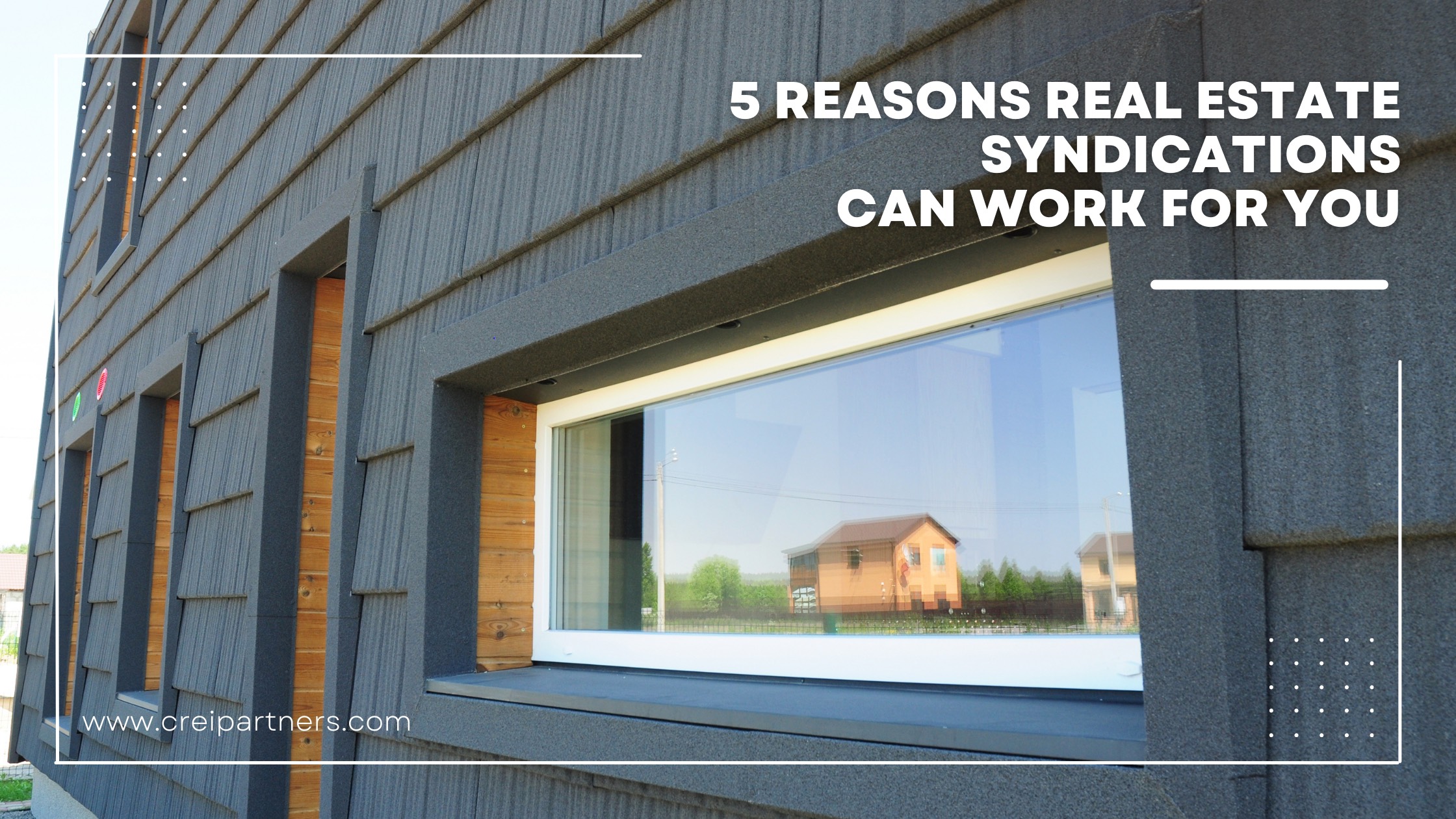If you’ve ever experienced owning single-family or multifamily homes, you know that these investments require time and energy. Investing in residential real estate can be challenging because, typically, you as the investor wear many hats throughout the seemingly never-ending process. Responsibilities include finding the property, funding the deal, renovating the property, interviewing tenants, and even performing maintenance. The trouble is, it doesn’t stop there. You have to repeat most of the process over again when your tenant’s lease is up. Investing in commercial multi-family real estate syndications can provide a simpler path toward growing wealth through real estate.
Why Investing in Multi-family Rentals Can Be a Lot of Work
Let’s look at the pros of multi-family rental rentals first. If one tenant moves out unexpectedly then you have other units that can compensate for the loss. Another pro is that you are only managing one property with multiple tenants as opposed to multiple properties with only one tenant each.
Even if you hire a professional management company to help with the day-to-day operations such as bookkeeping, maintenance, repairs, income management decisions, etc., you’re still basically in charge of overseeing that labor and are back running a small business, which can be overwhelming if you’re already working a full-time job.
The Case for Real Estate Syndications
There is an entirely passive option that is completely handled by a professional sponsor with years of experience and a team of key players that will professionally manage your investment capital so you can passively wait for a check to come in. This will ensure you AVOID the 3 T’s that keep property managers awake at night – Tenants, Toilets, and Termites!
According to Forbes, once investors begin to understand passive commercial real estate investments, it’s common for them to move toward syndications. Here are 5 reasons why Forbes is right:
-
Investors Save Time
In real estate syndications, you’ll be putting money in, collecting cash flow during the holding period determined by the deal sponsor, and receiving a profit upon the sale of the property. What would you be doing in the meanwhile? Basically sitting on the sideline rooting for your team passively.
You can forget about laboring to fix up the property after acquisition or perform the day-to-day maintenance (fixing Toilets, Dealing with Tenants or Termites. The deal sponsor and their professional team will work to ensure that the value add plan is executed and that you are receiving your income according to the business model.
-
Diversify Your Investment Portfolio
Let’s face it, who has the time to become educated and proficient in various markets? It could be a year or longer to become proficient in choosing the right investments, underwriting, and building your team. Plus there is the time to become educated in various submarkets.
On the other hand, by investing and working directly with an experienced deal sponsor you can quickly diversify into various markets and rely on the professional to take care of business while you diversify and mitigate risks.
-
Tax-Free Money! —–You Get a Pass From Uncle Sam
Multi-family real estate syndications come with an additional tax benefit, similar to what you would find in personally-owned rentals. Your holding income could potentially be Tax-FREE through cost segregation! The only taxes you would usually pay are upon the sale of the property at the end of the holding period, mainly due to capital gains. We always recommend discussing your tax liability with your tax advisor.
-
Your Personal Assets Are Well Protected
By definition, Limited Liability means that the losses that owners (shareholders) of a business firm may incur are limited to the amount of capital invested by them in the business. Risk does not extend to their personal assets. So for example, if you invested $75,000 through a real estate syndication deal, your liability is limited only to that amount and your personal assets would not be at risk. Your biggest risk would be losing out on the initial $75,000 that you invested and losses will not be transferable to any other assets. This is far different from owning residential real estate, which can involve much more funding to renovate than the original investment.
-
Changing Lives For The Better
The impact that you can make in the lives of many families is unlike any other in a “for-profit business.” You have the privilege and honor of providing dozens or hundreds of families with safe, clean, and worthy living facilities. By making notable improvements on the property you are elevating the living standards for many families. You are also improving the extended neighborhood and community. The very nature of syndications is to find a property that has upside potential. This means that at the end of the holding period you have created better living facilities for residents.
Conclusion
If you are debating between active and passive real estate investment, consider investing in real estate syndications. Passive real estate syndications are becoming the new road map to reaching financial independence. The passive investing path is a great way to diversify your portfolio and mitigate risks. The end result is a positive impact on yourself as well as many others who live in your units.
Additional Resources
Unlock your Ideal Work-Life Balance by Passively Investing in Real Estate
Exploring Growth Mindset and Build-to-Rent Community Investments with Ruben Greth Pt. 2


 Subscribe to our newsletter so you never miss out on new investment opportunities, podcasts, blogs, news and events.
Subscribe to our newsletter so you never miss out on new investment opportunities, podcasts, blogs, news and events.